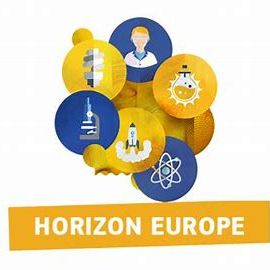Programme: Horizon Europe – IA – CL6-2023-BIODIV-01
Project title: Restoration of deep-sea habitats to rebuilt European Seas
Acronym: REDRESS
Duration: 01/02/2024-31/01/2028
Project budget: € 8.656.994,00
ISMAR budget: € 462.500,00
Web site: n.a.
Summary:
Especially in the deep sea. REDRESS will provide solutions to prioritize future restoration actions, extend deep-sea restoration to previously neglected habitat types, and demonstrate the feasibility, potential, and value for success of deep-sea ecosystem restoration. The project will focus on habitats that have great potential to contribute to carbon sequestration and climate mitigation but have been degraded by deep-sea fishing, especially trawling. Specifically, we will study vulnerable marine ecosystems, including sea pens and bamboo corals on soft sediments, coral gardens, cold-water coral reefs, sponge fields, and cold seeps. REDRESS will map degraded deep-sea habitats and identify habitat refugia to prioritize restoration efforts that will adapt to future scenarios of climate change. To adopt and adapt cutting-edge solutions for both restoration interventions and monitoring, REDRESS will make a significant technological investment and will benefit from a relevant ship time by in-kind contribution (136 days). REDRESS will offer nature based solutions to public authorities and operators to advance ecosystem restoration in the deep sea. Building on the MERCES experience, REDRESS will go beyond the state of art, either developing new methodologies, using sophisticated technologies, defining success indicators, and expanding the target habitats also to cold seeps. The results will enable a significant advancement in the EU’s marine restoration strategy. The project will also provide socio-economic data, protocols, and tools to plan, and upscale restoration interventions in deep sea habitats. Finally, REDRESS will provide novel insights into the advantages and limits of active vs passive deep-sea restoration, and related cost-benefit analysis of restoration in different deep-sea habitats supporting policies and decision makers in the future application of the Nature Restoration Law.
Contact person in ISMAR: federica.foglini@cnr.it
Partnership:
- Università Politecnica delle Marche – UNIVPM (Italy)
- Agencia Estatal Consejo Superior de Investigaciones Cientificas – CSIC (Spain)
- Institut francais de recherche pour l’exploitation de la mer – Ifremer (France)
- Helmholtz Centre for Ocean Research Kiel – GEOMAR (Germany)
- Stichting Nederlandse Wetenschappelijk Onderzoek Instituten – NWO-I (NIOZ) (Netherlands)
- Hellenic Centre for Marine Research – HCMR (Greece)
- National Oceanography Centre – NOC (UK)
- National University of Ireland Galway – NUI Galway (Ireland)
- Universidade de Aveiro – UAveiro (Portugal)
- Goteborgs Universitet – UGOT (Sweden)
- University of Haifa – UH (Israel)
- REV Ocean AS- REV Ocean (Norway)
- Marine and Freshwater Research Institute – MFRI (Iceland)
- Consiglio Nazionale delle Ricerche – CNR (Italy)
- University of Edinburgh – UEDIN (UK)
- Sorbonne University – SU (France)
- Stazione Zoologica di Napoli Anton Dohrn – SZN (Italy)
- Engitec Systems International-Ltd – ESI (Cyprus)
- Distributed Ecological and Environmental Subsea Sensing – DEESS (France)
- ECOREACH SME-Ltd – ECOREACH (Italy)
- Society for Ecological Restoration – SERE (Belgium)
- Israel Oceanographic and Limnological Research – IOLR (Israel)
- Wageningen University – WU (Netherlands)
- University of Azores – UAc (Portugal)
- Institute of Marine Research – IMAR (Portugal)
- Plymouth Marine Laboratory – PML (UK)
- Deep Sea Biology Society – DSBS (UK)
